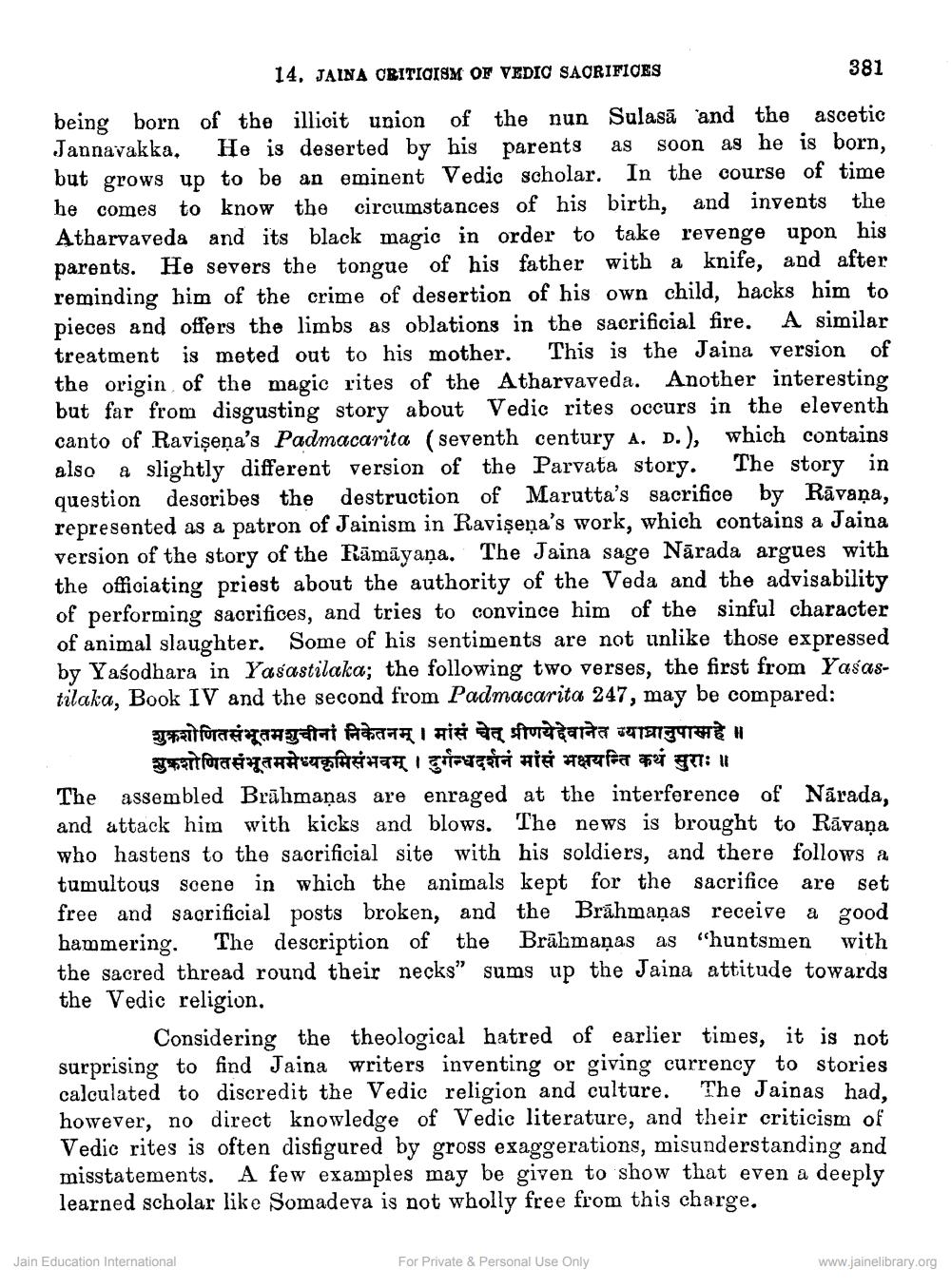________________
14, JAINA CRITICISM OF VEDIC SACRIFICES
381
being born of the illicit union of the nun Sulasā "and the ascetic Jannavakka. He is deserted by his parents as soon as he is born, but grows up to be an eminent Vedic scholar. In the course of time he comes to know the circumstances of his birth, and invents the Atharvaveda and its black magic in order to take revenge upon his parents. He severs the tongue of his father with a knife, and after reminding him of the crime of desertion of his own child, hacks him to pieces and offers the limbs as oblations in the sacrificial fire. A similar treatment is meted out to his mother. This is the Jaina version of the origin of the magic rites of the Atharvaveda. Another interesting but far from disgusting story about Vedic rites occurs in the eleventh canto of Ravişeņa's Padmacarita (seventh century A. D.), which contains also a slightly different version of the Parvata story. The story in question describes the destruction of Marutta's sacrifice by Rāvaņa, represented as a patron of Jainism in Ravişeņa's work, which contains a Jaina version of the story of the Rāmāyana. The Jaina sage Nārada argues with the officiating priest about the authority of the Veda and the advisability of performing sacrifices, and tries to convince him of the sinful character of animal slaughter. Some of his sentiments are not unlike those expressed by Yaśodhara in Yasastilaka; the following two verses, the first from Yasastilaka, Book IV and the second from Padmacarita 247, may be compared:
शुक्रशोणितसंभूतमशुचीनां निकेतनम् । मांसं चेत् प्रीणयेद्देवानेत व्याघ्रानुपास्महे ॥
शुक्रशोणितसंभूतममेध्यकृमिसंभवम् । दुर्गन्धदर्शनं मांसं भक्षयन्ति कथं सुराः॥ The assembled Brāhmaṇas are enraged at the interference of Narada, and attack him with kicks and blows. The news is brought to Rāvaņa who hastens to the sacrificial site with his soldiers, and there follows a tumultous scene in which the animals kept for the sacrifice are set free and sacrificial posts broken, and the Brāhmaṇas receive a good hammering. The description of the Brāhmaṇas as "huntsmen with the sacred thread round their necks” sums up the Jaina attitude towards the Vedic religion,
Considering the theological hatred of earlier times, it is not surprising to find Jaina writers inventing or giving currency to stories calculated to discredit the Vedic religion and culture. The Jainas had. however, no direct knowledge of Vedic literature, and their criticism of Vedic rites is often disfigured by gross exaggerations, misunderstanding and misstatements. A few examples may be given to show that even a deeply learned scholar like Somadeva is not wholly free from this charge.
Jain Education International
For Private & Personal Use Only
www.jainelibrary.org




